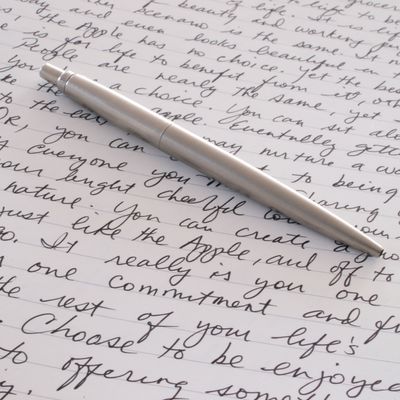
This week, the Cut reflects on self-reflection with a series of stories devoted to the art of memoir.
Of all the ultrapersonal disclosures — about history, about family, about secrets and mental problems and character flaws — in my memoir (Irritable Hearts), there was exactly one that was cut for gratuitousness. A friend flagged it initially, writing, “It is very brave of you to admit to things like [________],” when she finished the first draft. “You and I both know that some people won’t bother reading beyond that. It’s easy for a reviewer to pull that detail out of the book and throw it into a review, out of context.” It was her only such warning in eight pages of notes, and the only one anyone gave me. I’m not brave enough to say what it was here. As likely as it would have been to stand out starkly in a 100,000-word book, that’s a hundred times more likely among less than a thousand words of essay.
I’d written the memoir, about grappling with post-traumatic-stress and major-depressive disorders, largely because reading it from someone else during the grappling would have helped me feel less ashamed. I felt shame that I’d broken, and that I’d found it so hard to heal. There was additional shame in admitting the shame; though invulnerability doesn’t exist, for humans or anything else alive, there’s a premium on projecting it. So overall, this one little bit of nondisclosure was hardly going to save me from potential awkwardness or embarrassment.
I will confess that the detail was about sex. That wasn’t why I removed it. There was plenty of other sex: extramarital sex, graphic sex, casual sex, violent sex, enough sex that my Catholic mother told me, before the manuscript went to print, that she wished I wouldn’t make myself out like such a slut-slash-bad person, the latter of which she was sure I wasn’t and former she at least didn’t want other people thinking I was.
There were details I took out about other people, after long discussions with them (say, my parents) or a lawyer (say, about a perpetrator of a crime who’d never been charged and so could sue me for defamation). But even my friend was ambivalent about tinkering with my personal revelations. In her note about the one in question, she continued, “But you know what? This is YOUR memoir. And your life story. And if you think it’s important for people to know that, then you should leave it in.”
On second thought, I didn’t think I needed it. But I sought a professional opinion. “I don’t know how much I care that it invites so much possibility for judgment,” I wrote to my editor, Colin Dickerman, when I turned in the next draft without it (how emboldened I was, mid-total-unburdening, then!), “but [my friend] bringing it up did make me wonder how important/relevant it is.” He wrote back in the next round of edits that he agreed it didn’t add much, and further that it was distracting. It wasn’t relevant, and it was out.
Dickerman, currently the editorial director of Flatiron Books and formerly in senior editorial positions at Penguin Press and Bloomsbury, is no stranger to scandalous divulgences, much less ones involving dicks. He edited Chelsea Handler, for god’s sake. When I called him the other day, more than a year after the edit, to ask him what his thought process had been — and he knew exactly which part I was talking about, even before I specified, even after so much time — he said, “I didn’t think we needed to go there. Your book had a larger purpose about the nature of trauma, and that was a detail that was true but not important to your argument.”
Though it “definitely caught my eye,” he said, he wouldn’t have brought it up first. “It’s not my place to shame you: (a) It didn’t bother me enough to go to bat for cutting it, and (b) I could say, ‘This is gratuitous,’ but that’s kind of not my call within the context of your project. If you wanted to say it, I wasn’t going to censor you. But when you cut it, I did breathe a tiny sigh of relief.” Just because he wasn’t going to slut-shame me didn’t mean he thought other people wouldn’t.
Shockingly, Dickerman said he had never come up against a case of too-gratuitous-to-disclose-or-not before. Perhaps it’s because he doesn’t really subscribe to the (itself shaming) concept of TMI, or because “The books I’ve worked on that are ‘TMI’ tend to mine that for comedy.” Usually, if there’s anything he has to censor, it’s unlikability. “I always want the author to feel either sympathetic to the reader or that the reader’s gonna understand why they’re reading what they’re reading. Sometimes writers can be tone-deaf, like if they’re talking about privilege, or race. A lot of my job as an editor in those moments is to be like, ‘Do you understand how this is going to be perceived?’”
Like all girls, I was of course socialized to know the risks of disgusting, enraging, or offending others any time I open my mouth about sex. I didn’t care if squares thought I was a hussy. Before the book came out, my worry about how I would be perceived concerned the level of psychiatric dysfunction I was owning. It’s much less acceptable to be mentally ill. I worried that people wouldn’t be able to interact with me without treating me as damaged (which has, occasionally, happened), or that future employers wouldn’t want to hire me (which, awesomely, has not). It’s highly unlikely that the one detail I took out would have been the step too far that made me seem too unclean, or unhinged, to like or work with. But it’s impossible to speculate. Some sentences upset friends or family for reasons that I never could have anticipated, and others comforted strangers in ways I only could have hoped for.
If I’d kept the detail in, certainly I wouldn’t have been the first person to make a similar confession. If I were, that would have made it important, regardless of its relationship to my larger story. The point of memoirs is to expand our understanding and inclusion, to share what we’ve learned, or accomplished, or survived, to normalize, incite, and inspire. For me, that’s the purpose of exposure, as well as the line: a contribution to the notion that as people — as collections of feelings and experiences — we are all valid.





